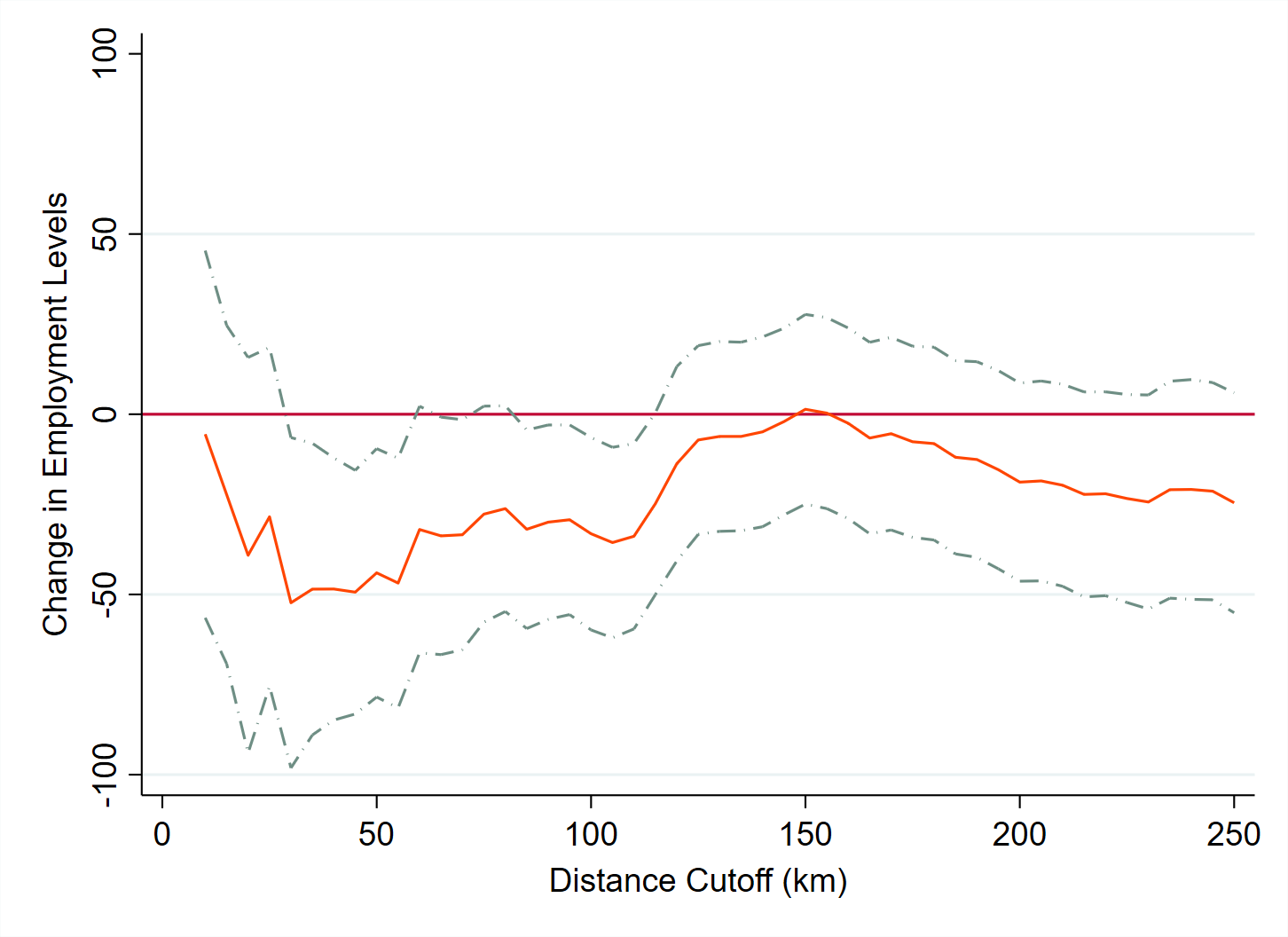Working Papers
(Revise & Resubmit, Journal of Development Economics)
Check out my article on the World Bank Development Impact blog!
Corruption between government and firms can affect workers’ activism decisions. To test this hypothesis, I analyze the impact of China's anti-corruption crackdown on strikes, leveraging temporal and geographical variations in corruption inspections. Following a city’s first high-profile corruption inspection, strikes doubled within one year and tripled within two years. This increase was concentrated in private construction and manufacturing sectors, with wage arrears as the primary grievance, particularly in cities with high pre-existing corruption levels. The rise in strikes also exhibited network effects across cities. The mechanism driving this phenomenon is that inspections increased workers' expected returns from striking, thereby exposing pre-existing grievances in a corrupt environment.
Conference Presentations: The 21st Journées Louis-André Gérard-Varet (2022), 100 Years of Economic Development (2022), The North East Universities Development Consortium (NEUDC) (2022), The 20th Midwest International Economic Development Conference (MWIEDC) (2023), the Sixth World Labor Conference hosted by Society of Labor Economists (SOLE 2025)
This paper examines the role of social networks in the diffusion of labor strikes in the United States. Using new data from the Cornell ILR Labor Action Tracker (2021–2024) and Facebook-based county connectedness measures, we document that strikes spread primarily through social networks rather than spatial, industrial, or political linkages. A 1% increase in network exposure is associated with a 2.3% contemporaneous and 0.8% lagged increase in strike activity. We show that both informational and behavioral channels drive diffusion. Policy and administrative environments, such as right-to-work laws and public-sector notice requirements, shape the timing and persistence of these network effects.
Conference Presentation: Global GLO-JOPE Conference 2025 (scheduled)
Publication
Chen, Huiyi. (2025) Who Bears the Cost of Nationalism? A Spatial Analysis on the Unintended Spillover Effects of Boycotts. Economic Inquiry, 63(1), 4–46.
Politically motivated boycotts aim to harm the sales of goods associated with foreign rivals, but can also harm the domestic economy if the goods are domestically produced. This paper examines the unintended effects of the 2012 Chinese boycott of Japanese cars on China’s automobile supply chain. By comparing changes in employment between auto parts and non-parts industries located at various distances from Japanese joint ventures (JV), I find that auto parts manufacturers near the Japanese JVs experienced a 10-17% reduction in employment after the boycott.


